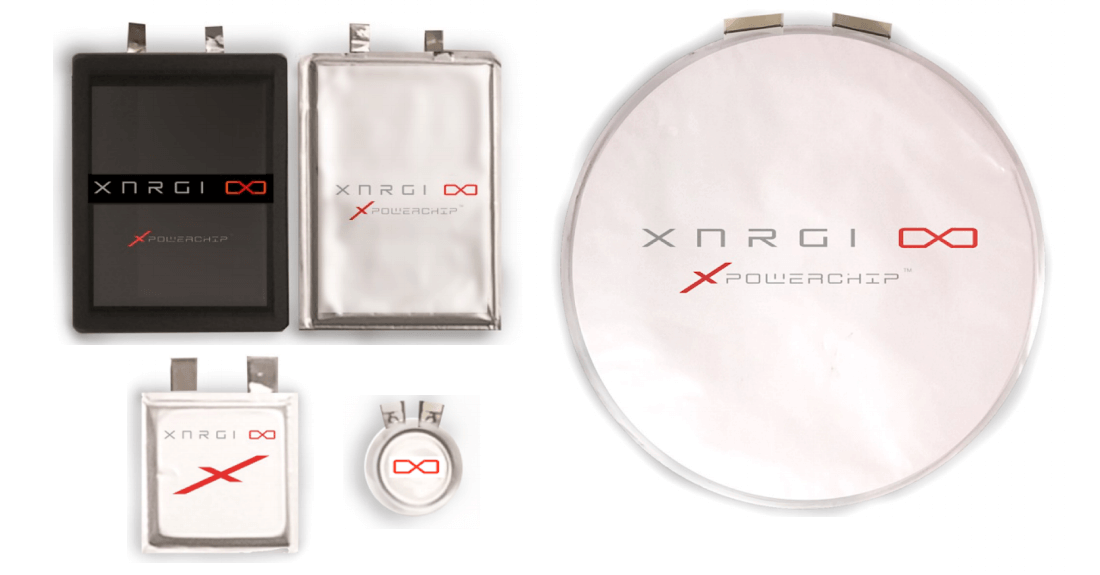Something to look forward to: As we wait for for better batteries, the many wonder technologies we've been promised for the last decade have failed to materialize to market for various reasons. This may not be the case of XNRGI, a startup that is ready to ship a "porous" silicon battery that has better energy density and lower manufacturing costs than traditional lithium-ion batteries, and is also safer to use.

One of the reasons why electric cars aren't more ubiquitous and why our battery-powered devices don't last as much as we'd expect on a charge is that advancements in the field of energy storage haven't kept up with the rest of the innovation happening in the tech industry. While new battery technologies seem to pop up every few months with the same promise of higher energy density and durability, faster charging, and lower cost, none of these have made an appearance in commercial applications yet.
Recently a Washington-based startup that has been keeping a low profile for years has unveiled plans to take their patented battery technology to market in 2020, with a project to build grid-scale batteries for the North-American power market. The company says its patented technology has been in the works for 15 years, and is an essential part of the "North American Solution to Climate Change," with four times the energy density of lithium-ion batteries at half the cost.
A key person in this development is Christine Hallquist, head of Cross Border Power, who also had a failed gubernatorial run in Vermont last year -- two experiences that taught her about the challenges of transitioning to renewable energy without grid-scale storage in place. The Republican Governors Association was able to quickly shoot down her campaign with claims that her project would hike gas prices and local taxes.
What the RPA didn't know is that a group of Canadian venture capitalists had been following Hallquist's campaign and saw it as the perfect opportunity for XNRGI, who silently developed a "porous" silicon battery that is apparently ready to ship at scale.
XNRGI makes its batteries using silicon wafers that are similar to those used by semiconductor companies to produce their chips. After etching a very dense, 20 by 20 micron honeycomb pattern into those wafers, they coat them with lithium and other metals to form the anodes and cathodes of so-called "micro-batteries".
While the idea of using silicon to improve energy density isn't new, the biggest roadblock has been that silicon expands when the battery is charging, which leads to deterioration and so-called "dendrites" that grow over time and have the ability to short out the electrodes, which is a big no-no for safety.
The company says that each one of its micro-batteries has enough space between the electrodes and holds a low-enough charge on its own to prevent that from happening. Every 12 inch silicon wafer houses 36 million of these vertical micro-batteries, forming a macro-battery which has the added benefit of charging faster because of its unorthodox architecture. XNRGI has already built 600 of these for unnamed clients.
It's worth noting that XNRGI's batteries are recyclable, and are not as susceptible to thermal runaway as traditional lithium-Ion batteries. Their energy density of over 400 Wh/kg makes them less expensive to make and thus an ideal candidate for EVs and grid-storage. That said, the company claims it can achieve the same $150/kWh regardless of the application or scale, which means these benefits are also available for all manner of consumer electronics such as wearables, smartphones, tablets, and laptops.
Hallquist says the development of this battery technology was supported by an $80 million investment from Intel and Motorola, as well as public sources like the U.S. Navy and Department of Energy. Her company has exclusive rights to sell these batteries to utility companies in North America and is looking to start shipping them early next year.
To put things in perspective, the current global capacity for battery technology is around 150 gigawatts. The inconvenient truth is that even at an estimated compounded annual growth rate of 40%, it's too little for our dreams of an electric future. Batteries also haven't really gotten any cheaper and they represent 35-45% of the price of an electric car. Until that changes, even if we could make more EVs, they'd still be too costly for the average consumer.
This is where companies like XNRGI can help, provided that they play their cards right. By using manufacturing techniques that are already mature such as those used by chipmakers, they can cram more energy in less space at a lower cost, all while adding the most important ingredient needed in a car -- safety -- which you can see demonstrated in this video. In any case, this might just be the dream battery we've all been waiting for.
https://www.techspot.com/news/81029-startup-aims-bring-porous-silicon-battery-evs-grid.html